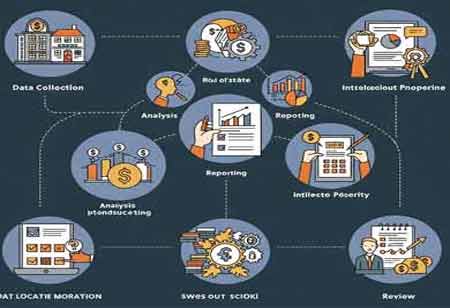CLOSE
Specials
- Digital Insurance Europe
- RegTech Europe
- Financial Risk Management APAC
- Investment Banking APAC
- Corporate Advisory APAC
- Regtech APAC
- Escrow Services
- Digital Banking Latam
- Trading Solutions APAC
- Treasury Management Europe
- CPA Firms Canada
- Financial Risk Management Europe
- Mortgage Broker
- Financial Licensing Europe
- RIA Advisory Europe
- FinTech Canada
- Financial Asset Management APAC
- Payment Solution
- Lending Mangment Latam
- Payment Solution Europe
- Broker Dealer Firms Canada
- Alternative Investments Canada
- Financial Fraud
- Investment Management Latam
- Financial Health Europe
- Lending mangment
- Financial Marketing
- Proprietary Trading Europe
- Wealth Management
- FinTech
- Financial Brokerage Firm APAC
- Investment Advisory Europe
- Investment Advisory APAC
- Wealth Management MENA
- Claim Adjusting
- Claim Adjusting APAC
- Mergers and Acquisitions Consulting APAC
- Equipment Financing
- CPA Firms
- Mergers and Acquisitions Consulting Canada
- Investment Services
- Valuation Services Canada
- Wealth Management APAC
- Broker Dealer Firms
- Debt Collection Agencies
- Mergers and Acquisitions Consulting
- FinTech Europe
- Fintech Latam
- Financial Planning / Retirement
- Investment Management
- Financial Compliance
- Investment Banking Canada
- CFO Services
- Debt Collection Agencies Europe
- Wealth Management Europe
- Mergers and Acquisitions Consulting Europe
- Financial Restructuring Europe
- Financial Portfolio Management Canada
- Business Loan
- Payment and Card Latam
- Wealth Management Latam
- Mergers and Acquisitions Consulting Latam
- Tax Advisory Canada
- Trading Solutions Europe
- Alternative Investments
- Investment Services Latam
- Digital Banking Europe
Weekly Brief
×Be first to read the latest tech news, Industry Leader's Insights, and CIO interviews of medium and large enterprises exclusively from Financial Services Review
Thank you for Subscribing to Financial Services Review Weekly Brief
Interconnected Industries: The Relationship Between Digital Insurance and Financial Services
The fintech industry has emerged as a disruptive force in the banking and financial industry through the use of cutting-edge technology to develop cutting-edge products and services.

By
Financial Services Review | Thursday, May 11, 2023
Stay ahead of the industry with exclusive feature stories on the top companies, expert insights and the latest news delivered straight to your inbox. Subscribe today.
FinTech encourages the use of digital technology in startups so that they can come up with innovative products and services, such as mobile payments, alternative finance, online banking, big data, Robo advisors, peer-to-peer lending, crowdfunding, and overall financial management.
The fintech industry has emerged as a disruptive force in the banking and financial industry through the use of cutting-edge technology to develop cutting-edge products and services. The traditional banking and financial sector is being significantly challenged by fintech companies, which are revolutionising how consumers manage their finances, invest, and get credit.
Fintech is changing the financial environment in a variety of ways, from digital payments and online banking to personal money management and blockchain technology. Examining the effects of fintech on the banking and financial sector as well as the potential and difficulties it brings for both firms and consumers are vital in this setting.
The impact of fintech on the banking and financial industry is significant and far-reaching. Here are some of the ways fintech is changing the industry:
1. Digital Payments: Fintech companies have transformed the way individuals make payments. With the introduction of mobile payment apps and digital wallets, consumers can now make payments seamlessly and quickly using their smartphones. This has led to a decline in the use of cash and cheques and an increase in the use of digital payments.
2. Online Banking: Fintech companies are also changing the way people access their bank accounts and perform banking transactions. With the rise of online banking platforms and mobile banking apps, people can now check their account balances, transfer funds, pay bills, and perform other banking tasks from their mobile devices.
3. Personal Finance Management: Fintech companies are offering new and innovative ways for individuals to manage their finances. With the help of mobile apps and online platforms, consumers can track their expenses, create budgets, and get personalised financial advice.
4. Peer-to-peer lending: Fintech companies are also disrupting the traditional lending industry. Peer-to-peer lending platforms connect borrowers directly with investors, bypassing traditional banks. This has led to lower borrowing costs for consumers and more efficient lending processes.
5. Blockchain Technology: Fintech companies are exploring the potential of blockchain technology to revolutionise the financial industry. Blockchain offers a secure and transparent way to store and transfer financial assets and has the potential to eliminate intermediaries such as banks and payment processors.
The emergence of financial technology is having both positive and negative effects on the banking industry. On the one hand, it is giving banking institutions new ways to improve the services they offer to their clients, using tools like chatbots to enhance the client experience, mobile apps to give clients a real-time view of their bank accounts, and machine learning to secure against fraud. On the other hand, fintech is putting traditional banking and financial services under intense pressure from all sides, endangering the long-term viability of some of our most recognisable institutions.
The fintech revolution has streamlined and expanded banking and financial services. Users that use technology can benefit from automation to quicken tasks that would previously require human labour. While some financial services continue to use a combination of advisors and algorithms, other processes, like applying for a loan or a mortgage, can now be completed quickly and conveniently online with no human interaction.
Digital insurance and financial services
Digital insurance and financial services both entail managing and protecting financial assets, thus they are closely related. Financial services refer to a wide range of services connected to managing money and financial activities, whereas digital insurance refers to the use of technology to provide insurance products and services.
The use of technology to deliver financial services like payments, transfers, and investments is one way that digital insurance and financial services are connected. To provide integrated services that let clients manage both their money and insurance coverage in one location, insurance companies are increasingly forming partnerships with financial institutions.
Digital insurance can also assist financial services firms in risk management and loss mitigation. For instance, using insurance products to guard against cyber threats, financial fraud, and other hazards that might affect the financial services sector.
As these sectors are interconnected and have similar interests, the relationship between digital insurance and financial services can substantially impact banking. Using data analytics is one way that digital insurance might affect banking. As digital insurance providers gather more information about their clients, they can learn more about their behaviour and preferences, which will help them develop better products and services. Banks can also access this information, which will help them better understand their clients' demands and provide more specialised financial products.
Digital insurance can potentially provide banks with new sources of income. Banks may provide their clients with a larger range of financial goods, including insurance, and profit from these products by collaborating with digital insurance businesses. Through the use of technology, digital insurance can also have an impact on banking. To automate procedures and boost productivity, digital insurance businesses frequently make use of cutting-edge technology like artificial intelligence and machine learning. Additionally, banks can use these technologies to enhance their operations, which will reduce costs and boost profitability.
Overall, the relationship between digital insurance and financial services is one of integration and collaboration, with both industries using technology to provide more efficient and effective services to their customers.
Overall, fintech is transforming the banking and financial industry by offering new and innovative ways for people to manage their money, invest, and access credit. As fintech continues to grow and evolve, it will likely have an even greater impact on the industry in the future.

Copyright © 2025 Financial Services Review. All rights reserved





